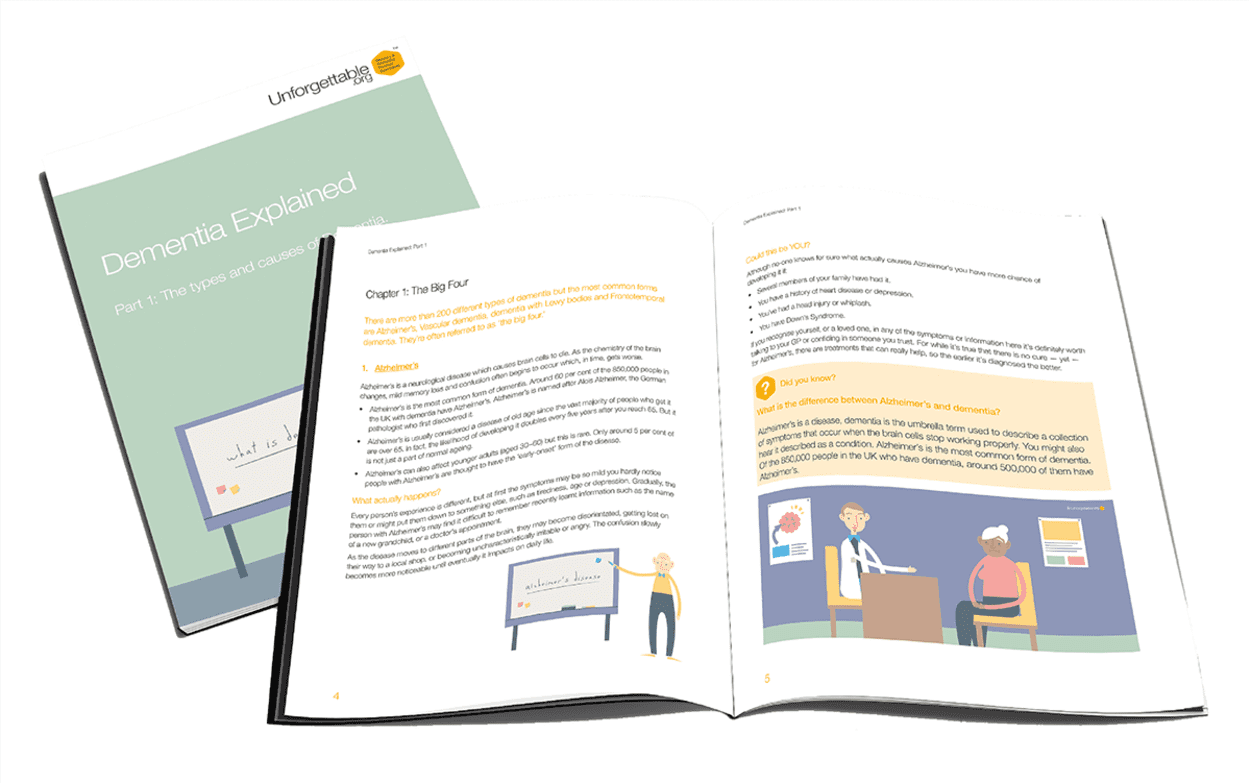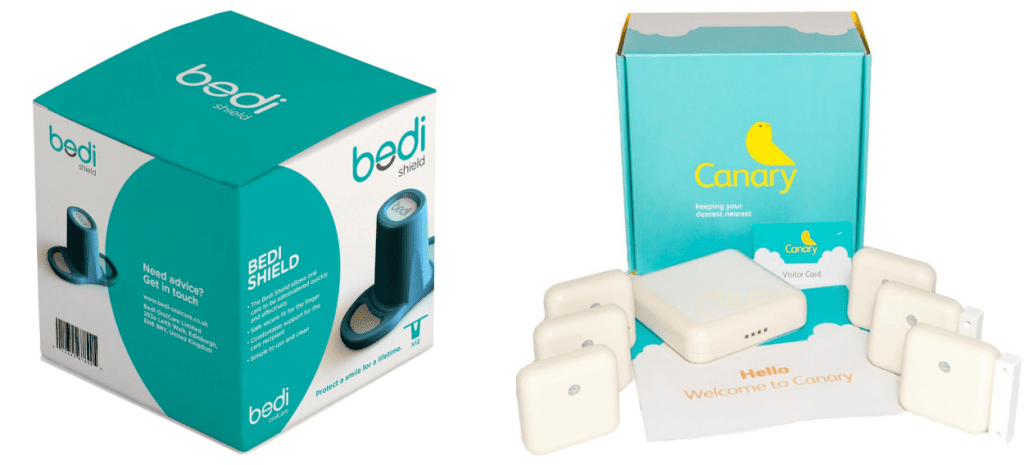The Elder Interview: James Ashwell, Founder of Unforgettable.org

I first had some idea of what was affecting my mum when I was 18 or 19
She was driving me home from an army cadet camp – on the wrong side of the road. I remember thinking it was very weird. But there is a difference in dementia between knowing and accepting.Mum and Dad had been happily married since 1968 and my dad was looking forward to retiring and enjoying his sunset years with her. Maybe that’s why he couldn’t bring himself to tell us when she was finally diagnosed with frontotemporal dementia in 2003. Instead, he played it down and protected her – and us – from it, which wasn’t too difficult because by then my siblings and I had all left home. Consequently, none of us realised just how much her illness had progressed, until my father died, just before my 25th birthday.
I ended up quitting my job to care for my mum. I was quite young, and people of my own age just thought she was having a problem with memory loss – not dealing with a terminal degenerative disease. There was a definitely lack of understanding and empathy. I think it’s a common thing when faced with a dementia diagnosis in the family to find there is no one around going through the same thing and often no real practical help.
To have to be exploring solutions and learning at the point of crisis was incredibly hard.
When I was looking for things to help I wanted an aisle in a chemist, I wanted a stand in John Lewis. Where do you go to find products and information? I have four siblings, two of which are doctors, and we still all struggled.
I thought “what happens when smaller families or people who are holding down their own families too have to deal with this”.
This got me thinking that we needed to do the work for them. We needed to find out the challenges and the best solutions for people in this situation and to be able to say here’s the problem and these are the ways to deal with it.
I passionately believe there is plenty of life to be lived with dementia and that products and services can really help
James Ashwell
I knew exactly the kind of business I wanted to start
A social business that was also a business solving social problems. I didn’t want us to be a shop just “selling stuff”. My CEO is great at getting me to get to the point, and he told me to write down all the challenges I’d experienced with my mum. Then we did a big literary review of all the studies on dementia to see how similar my experience was to other across the board. We ended up with 13 challenges, each of which has an opposite quality of life indicator, which is what we trying to help people achieve. We talked to dementia carers as well to capture the stuff we hadn’t thought about – which led to us adding a 14th, ‘practising faith’. I started to work full time on Unforgettable in 2013 – and we finally launched in Sept 2015.
Products can be life changing
The common idea isn’t this though; it’s the “inevitable decline to a little old grey lady staring out of the window”. My mum was a very keen cook, for example, and we weren’t prepared to let an activity that took up half of her normal day go when she developed dementia. My brother contacted a chicken farm near us and found that they used gloves that were a mix of nylon and Kevlar, which you can’t cut through. They sent 10 pairs to us and Mum started putting them on whenever she went into the kitchen. With these, she continued to cook two years longer than she would have without.
The first phase of Unforgettable was about finding products that could help
We launched with around 1000 on the site. In our second phase we are now also involved in product development; we have three products of our own so far, the Day Clock, a Tracker and Legal Service – and about 10 in development. We are also partnering with Lloyds Pharmacy on our own brand production and will be putting a range of products into their shops soon. We’re also offering services now too – and I am very proud of our Lasting Power of Attorney. There are 2m LPAs a year and their number one use is for dementia. But no one had realised this – we did the research, and have created a service that is specifically tailored for people with dementia. No one has ever created specialised dementia insurance either, for example – there are lots of challenges still to be met.
Most people come to the site for advice and may look around a bit
If they’re in need of a product, though, they generally know exactly what they want, but we also have a physical catalogue, which people tend to use for browsing. Many dementia products, and their packaging, are horrible – and not stuff you want to buy. We focus on finding the ones that aren’t – and treating our customers as customers. Some, we hope, will think “wow that’s really nice” about some of our products. It’s one of the ideas behind our partnership with Lloyds, to create dementia products that look nice on the high street.
"Many dementia products, and their packaging, are horrible – and not stuff you want to buy. We focus on finding the ones that aren’t – and treating our customers as customers."
James Ashwell
We don’t decide whether a product is good or not
The point is we can’t judge. All we know is that someone out there has made the effort to design something that can help in one of the 14 challenges we’ve identified. Of course we make sure it passes safety assessment and quality control. But then we put on the site and see whether our customers like it and get that feedback through their reviews. Also in our experience they’ll quickly tell us and send it back if they don’t like it or it doesn’t work. Some of the things our customers love, I hate, and vice versa. And some I just don’t get; the companion puppy for example. But people love it!
A lot of the time though, a product isn’t good or bad, but only appropriate at a certain stage
For example, if you give a person with early stage dementia a Day Clock they might ask why someone is buying them a baby clock? By tagging everything with a dementia stage – early, mid or late – we can provide a clear filter for people. It can be quite scary for someone with early stage dementia to be faced with things like incontinence products, for example, so we can filter that out for them.
Research shows that the single biggest detractor on the dementia journey is an admission to hospital
The number one reason for an admission is a urinary tract infection. We sell a range of products to help with that – from cranberry tablets to an easy strip test on a pad that you can use to see if someone has the beginnings of a UTI. The second most common reason for admission is falls, and again, we’re working with range of shoes and stickers on the floor that can help guide people safely. And the number three is dehydration. We sell a range of unbreakable glassware and a sensor you can put on a glass which will beep if it hasn’t been drunk out of within 30-40 minutes. All of these things start from around £3-4 in price, and can change lives.
Unforgettable.org is a one-stop dementia web resource offering products, services and advice. It can help with solutions to 14 key challenges in dementia – including memory loss, wandering, sleeping, staying connected and eating well.
The site has a range of products for sale, including books, plus advice banks, services and forums in which you can share your experiences with others.
For me, dignity is a big focus
An obvious example is children’s products, and a lot of people target this demographic with them. We do sell some, but we flag up what they are, so it’s not a shock when the product arrives. We are now looking at taking some of these existing children’s products though and actually making them adult. Another example is adult bibs; my mum used to use these and I have a passion for finding alternatives to these. At the moment we are looking at a pashmina that can catch your food as an alternative, something a lady can wear that also looks nice.
Our biggest challenge is that 87 percent of people don’t believe products can help with dementia
We commissioned some market research that highlighted the problem of perception, and our main aim now is to show that’s not true. Thousands of products help people to do things that we all take for granted; to listen to music, cook, feed themselves and so on. It’s a question of giving back dignity, choices and independence. Our five-year aim as a business is to collect sufficient data on use, advice and products to show local government that with the right help it is possible for people to live in their own houses for longer.
